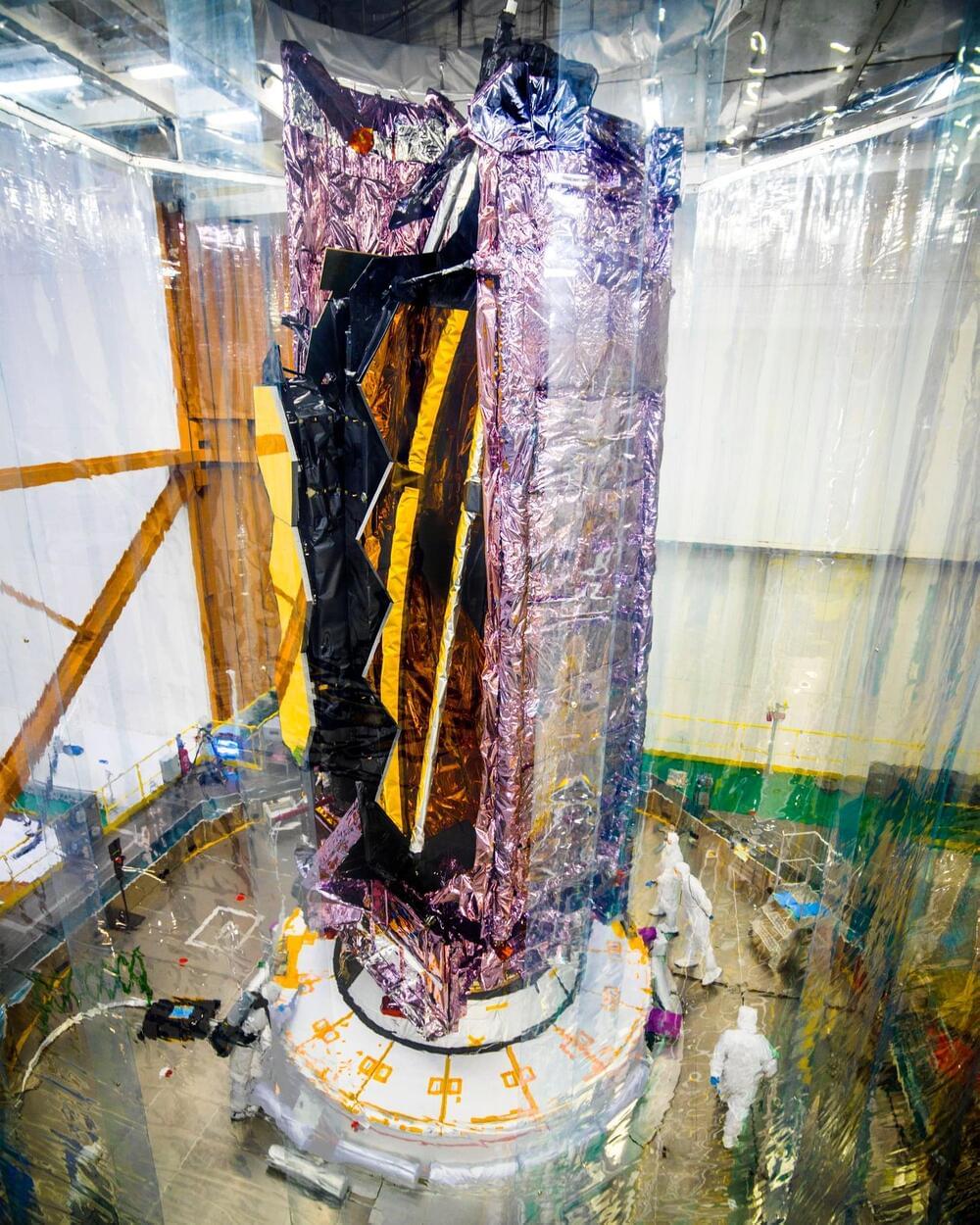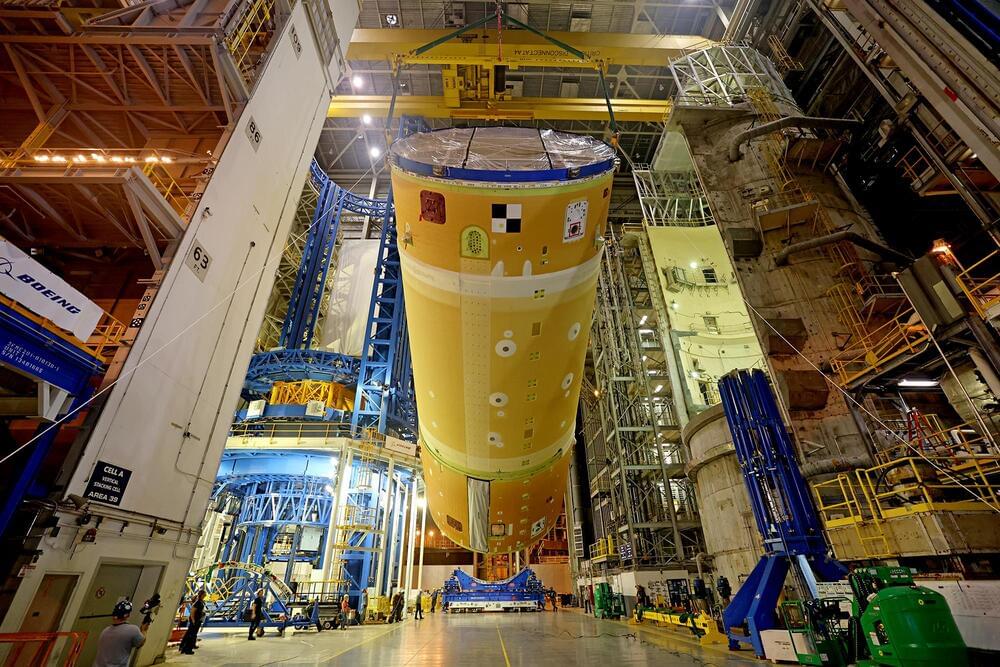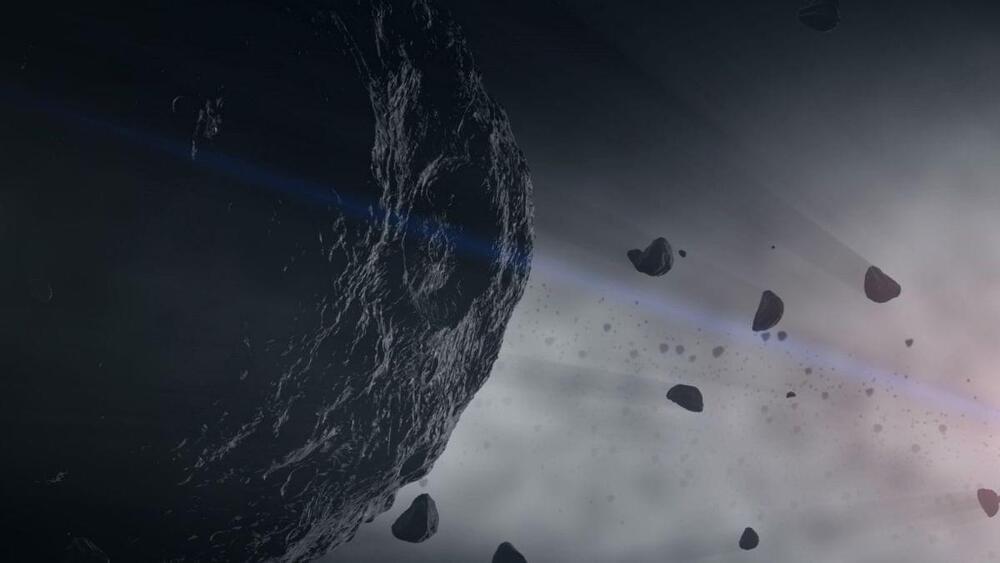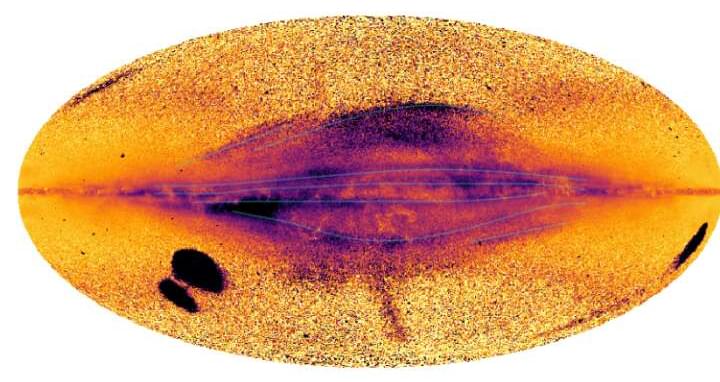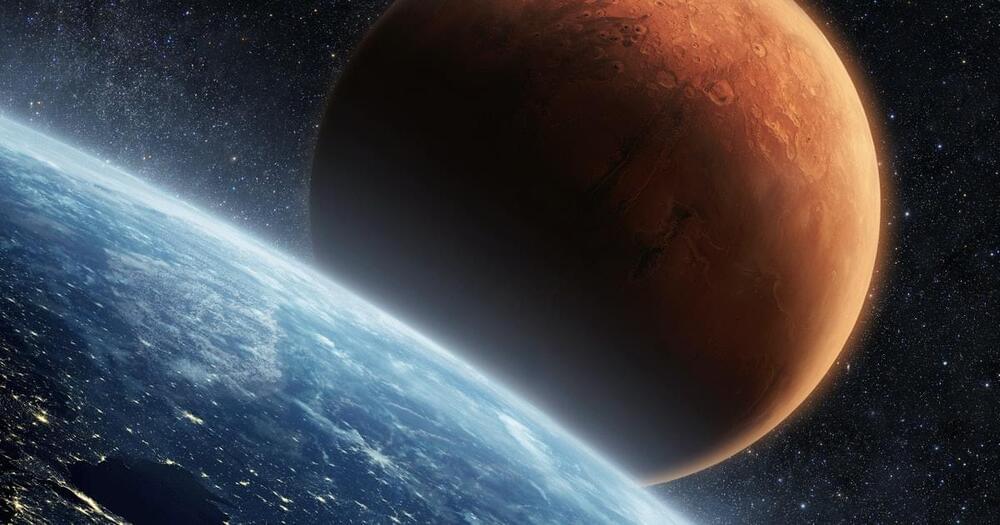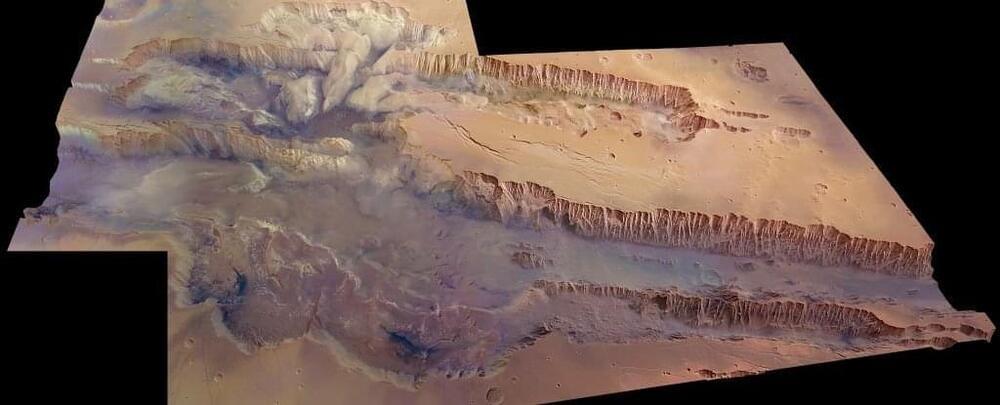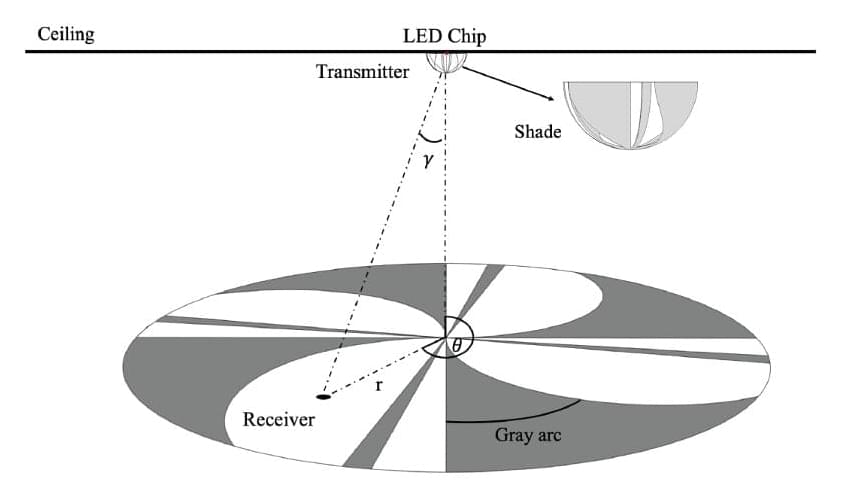Archive for the ‘space’ category: Page 459
Dec 17, 2021
NASA Completes Upper Part of Artemis II Core Stage
Posted by Alberto Lao in category: space
NASA has completed assembly of the upper, or forward, part of the core stage for the Space Launch System (SLS) rocket that will send the Artemis II crew on their lunar mission. Boeing, the lead core stage contractor, completed joining the forward part of the rocket, and then lifted it out of the assembly structure at MAF in New Orleans.
Dec 17, 2021
Juno flyby reveals stunning new images of Jupiter, sounds of its moon Ganymede
Posted by Genevieve Klien in category: space
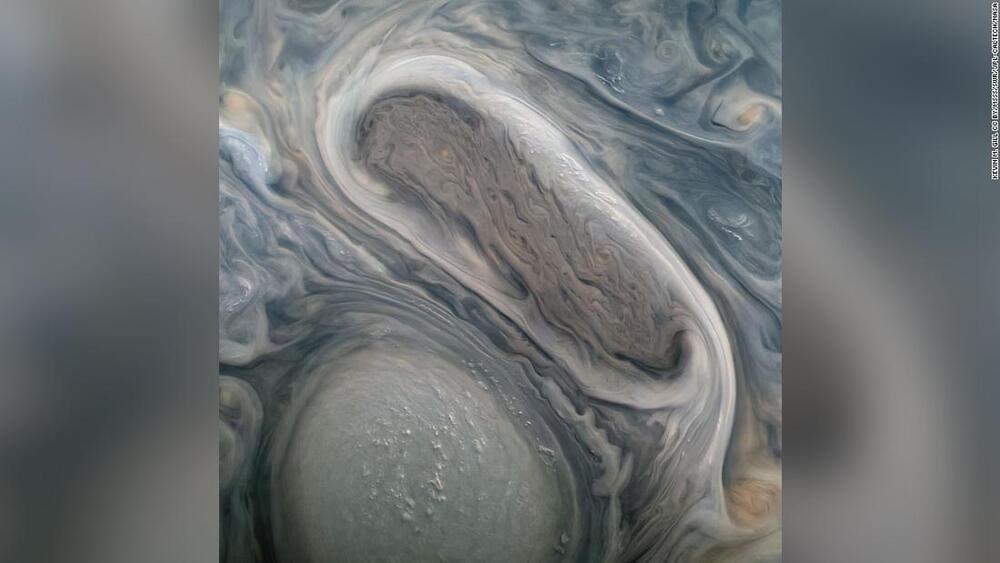
Flybys of Jupiter and its moon Ganymede conducted by the NASA Juno mission have revealed new Van Gogh-like images of the gas giant, as well as the sounds made by one of its moons.
Dec 17, 2021
UAE looks to build on Mars mission success with tour of the asteroid belt
Posted by Genevieve Klien in categories: economics, space
Less than a year after nailing its first interplanetary mission with a flawless Mars orbit insertion, the United Arab Emirates has selected its next destination: the asteroid belt.
In October, the UAE announced that it was aiming to launch a new spacecraft in 2028. Like the Hope Mars orbiter, the as-yet-unnamed asteroid mission is designed to meet specific science goals, but it is also being carefully engineered to shape the nation’s future as the UAE looks to diversify its traditionally oil-focused economy. That gives the UAE’s missions a different flavor than what NASA fans are used to seeing.
Dec 17, 2021
Fossil Spiral Arms Found In The Outskirts Of The Milky Way
Posted by Genevieve Klien in category: space
Structures in our galaxy’s outer disk have been identified as likely fossil spiral arms, remnants disrupted by encounters with the gravity of nearby dwarf galaxies.
The Gaia Space Observatory has revealed the motion of millions of stars in exquisite detail, allowing astronomers to identify patterns, with stars’ similar movements revealing shared origins or histories. This has created a science of galactic archaeology, which has identified smaller galaxies absorbed into the Milky Way so thoroughly their identities were previously invisible.
Dr Chervin Laporte of the University of Barcelona has used Gaia’s observations to study an often neglected part of the galaxy, the area opposite the galactic center as seen from Earth. In Monthly Notices of the Royal Astronomical Society: Letters Laporte and co-authors describe structures they propose were part of the Milky Way from the beginning, but have been so distorted by external influences they can hardly be identified.
Dec 17, 2021
Malaysia outlines national space blueprint with focus on remote-sensing satellite development
Posted by Genevieve Klien in categories: economics, policy, satellites, security, space
SEOUL, South Korea — Malaysia is developing a national space blueprint to drive the growth of its space sector, particularly the manufacturing of remote-sensing satellites, satellite components and data-driven downstream services.
During a Dec. 13 parliamentary hearing, a deputy minister shared the latest update on the “Malaysia Space Exploration 2030” blueprint being fleshed out by Malaysia’s Ministry of Science, Technology and Innovation.
The deputy minister overseeing the effort, Datuk Ahmad Amzad Hashim, said the blueprint outlines a 10-year strategy in line with Malaysia’s National Space Policy 2030. The policy, adopted in 2017, recognizes the importance of space technologies for the country’s economic growth and national security.
Dec 17, 2021
Planet 9: Is Earth’s long-lost twin lurking in the outer Solar System?
Posted by Atanas Atanasov in category: space
Early drafts of the Solar System are messy.
Just what did early drafts of the Solar System look like? A review paper found that our system once had one or more rocky planets ejected in the early chaos.
Dec 17, 2021
Astronomers Detect Secret Water Reserves in The Largest Canyon in The Solar System
Posted by Shubham Ghosh Roy in category: space
A vast system of canyons that dramatically scars the face of Mars could be harboring reserves of hidden water.
An unusually high quantity of hydrogen has been detected in the heart of the 4,000 kilometers (2,485 miles) of canyons known as Valles Marineris, nicknamed the Grand Canyon of Mars. We know this thanks to new data from the ESA-Roscosmos ExoMars Trace Gas Orbiter’s FREND instrument.
The finding suggests that, at depths up to a meter (three feet) below the surface, the soil in the region is rich in water, either bound up in minerals or as subsurface water ice, potentially offering a new way of locating the precious stuff on the apparently extremely arid world.
Dec 17, 2021
Curve Light: A highly performing indoor positioning system
Posted by Saúl Morales Rodriguéz in categories: augmented reality, internet, robotics/AI, space, virtual reality
In recent years, engineers have been trying to develop more effective sensors and tools to monitor indoor environments. Serving as the foundation of these tools, indoor positioning systems automatically determine the position of objects with high accuracy and low latency, enabling emerging Internet-of-Things (IoT) applications, such as robots, autonomous driving, VR/AR, etc.
A team of researchers recently created CurveLight, an accurate and efficient light positioning system. Their technology, described in a paper presented at ACM’s SenSys 2021 Conference on Embedded Networked Sensor Systems, could be used to enhance the performance of autonomous vehicles, robots and other advanced technologies.
“In CurveLight, the signal transmitter includes an infrared LED, covered by a hemispherical and rotatable shade,” Zhimeng Yin, one of the researchers who developed the system at City University of Hong Kong, told TechXplore. “The receiver detects the light signals with a photosensitive diode. When the shade is rotating, the transmitter generates a unique sequence of light signals for each point in the covered space.”
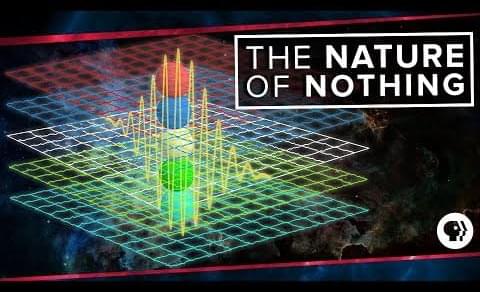
Viewers like you help make PBS (Thank you 😃). Support your local PBS Member Station here: https://to.pbs.org/DonateSPACE
It turns out that “nothing” is one of the most interesting somethings in all of physics. Signup for your free trial to The Great Courses Plus here: http://ow.ly/OOOp30beNyt.
